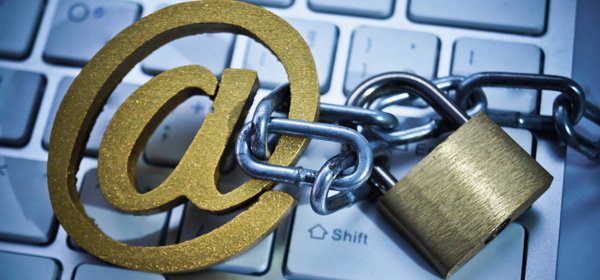You might not think your personal emails are that interesting to anyone else, but you would be surprised at how many companies and government agencies want access to your data.
Some of this intrusion appears in the name of national security, but there is plenty of evidence that private companies are just as interested in the content of your emails.
Google has admitted to scanning emails to deliver targeted advertising and customised search results and Facebook is facing legal action for scanning private messages for the same purpose.
How to protect your emails
You may have heard a lot about encryption in the news lately. The Federal Government is proposing laws to force providers of end-to-end encrypted communications services to decrypt messages for law enforcement before the end of this year.
While these laws are still only a proposal, encrypting your messages is the best way to ensure your email messages stay private.
Encrypting your messages allows only the sender and the receiver to read the content of a message. The encryption converts your information into a secret code that requires a key to decode it.
End-to-end encryption encodes your information before it leaves your device and it is only decrypted once it reaches the receiver’s device.
This means that security and privacy are not dependent on the email provider and if the message is intercepted it cannot be deciphered.
There are numerous services that promise free end-to-end encrypted communication, including ProtonMail, Tutanota, and the messaging app Signal.
These services cannot access their users’ information, no matter how hard they try. The only information they are able to provide are the date and time a user registered and the last time that they connected.
Why encryption matters to you
You may think the Government’s proposed encryption laws don’t affect you and that you don’t have anything to hide. But keeping communication over the internet private is crucial to the way it functions to protect your personal information.
Encryption is what stops hackers and thieves from taking your credit card details or sensitive private information when you shop online.
Any attempts to weaken encryption affects everyone. The Government has yet to reveal details of its plans to force companies to provide encryption keys, but for the process to succeed the authorities will most likely have to create a backdoor for entry. If that is the case, it will mean that nefarious types and criminals will be more likely to access your personal information and communications.
Facebook has already said weakening encrypted systems for Australian law enforcement would mean weakening it for everyone, including attackers.
Are you worried about your privacy online? Do you think the Government should be able to force email providers to provide access to email contents?
Related articles:
Email scam hits Qantas customers
Email scam hits Telstra customers
Email in real life

